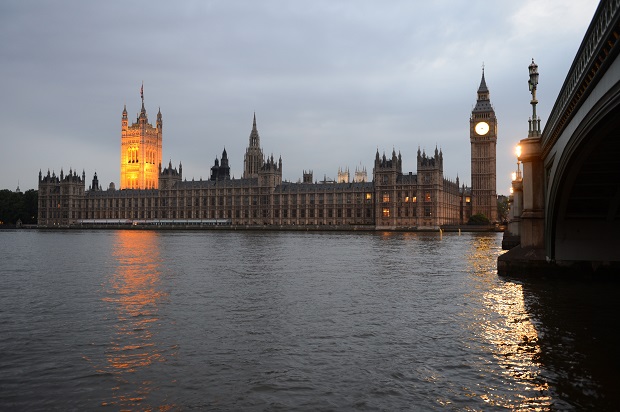So all three parties are to trawl their ‘dirt books’ held by the whips and disclose any evidence that they find of child abuse. The role of the whips was raised by Lisa Nandy in the Commons on Monday, when she quoted former Tory chief whip Tim Fortescue, who told Michael Cockerell’s documentary on the whips:
‘Anyone with any sense, who was in trouble, would come to the whips and tell them the truth, and say now, ‘I’m in a jam, can you help?’. It might be debt, it might be… a scandal involving small boys, or any kind of scandal in which… a member seemed likely to be mixed up in, they’d come and ask if we could help and if we could, we did.’
In May 1995, Cockerell wrote a Spectator cover story on this documentary. Here it is in full, with an extract below:
The Whips freely admit that they seek to know all about the lives of their members — not for purposes of blackmail, but because they want to understand any politi- cal or personal pressure which may affect voting intentions. They enter details about the private lives of Tory MPs in what they call the Black Book or the Dirt Book, which is kept locked in the Chief Whip’s safe at No 12. ‘The Dirt Book is just a little book where you write down various things you know or hear about people that may or may not be true,’ says Lord Whitelaw. ‘I think you could make a very good guess what sorts of things it contains.’
Tim Fortescue is more forthcoming: ‘Oh, scandalous stories. When you are trying to persuade a member to vote the way he didn’t want to vote on a controversial issue — which is part of your job — it is possible to suggest that perhaps it would not be in his interest if people knew something or other -very mildly.’
When I asked the National Heritage Secretary, Stephen Dorrell, a Whip from 1987- 90, about the use of the Dirt Book as a Whips’ weapon, he responded with a half- smile, ‘I think that most Whips know rather less about their colleagues’ lives than their colleagues might think — like all police work it’s based to some extent on a confidence trick.’
Dorrell’s point is well illustrated by the recent spate of Tory ‘sex ‘n’ cash’ scandals. Mellor, Yeo, Hamilton, Hughes and a dozen more members of the Government have resigned, while the hapless PPS Stephen Milligan was found dead in bizarre sexual circumstances.
Willie Whitelaw sees this, and deplores it as a prolonged failure of intelligence by today’s Whips: ‘I feel it’s a great shame the Whips did not know all these things in advance. As Chief Whip I would have been sorry if i hadn’t known. I find it surprising that the Whips did not know. And some of the tragedies that have happened might have been avoided if people had known beforehand; it’s much easier to handle things when you do know — the awful thing is to be caught unawares by a scandal.’
Tim Fortescue says that in his days as a Whip, from 1970-73, Tory MPs in financial or sexual trouble would come to the Office and ask for help. ‘And if we could help we would; because if we can get a chap out of trouble, then he’ll do as we ask for ever- more.’ But Rupert Allason claims that today’s Whips’ Office is ‘full of thrusting, ambitious young men — about the last people to whom you would wish to confide some kind of infidelity or indiscretion’.
Tristan Garel-Jones has a different perspective: ‘Never repeated by this loyal brotherhood of Whips are the many acts of kindness to colleagues which are part of their stock-in-trade.’ He goes on to claim that ‘the Whips are the unsung heroes of British democracy’, and adds a quote from Enoch Powell: ‘Parliament without Whips would be like a city without sewers.’







Comments